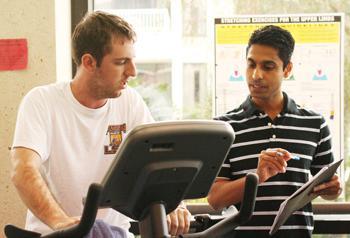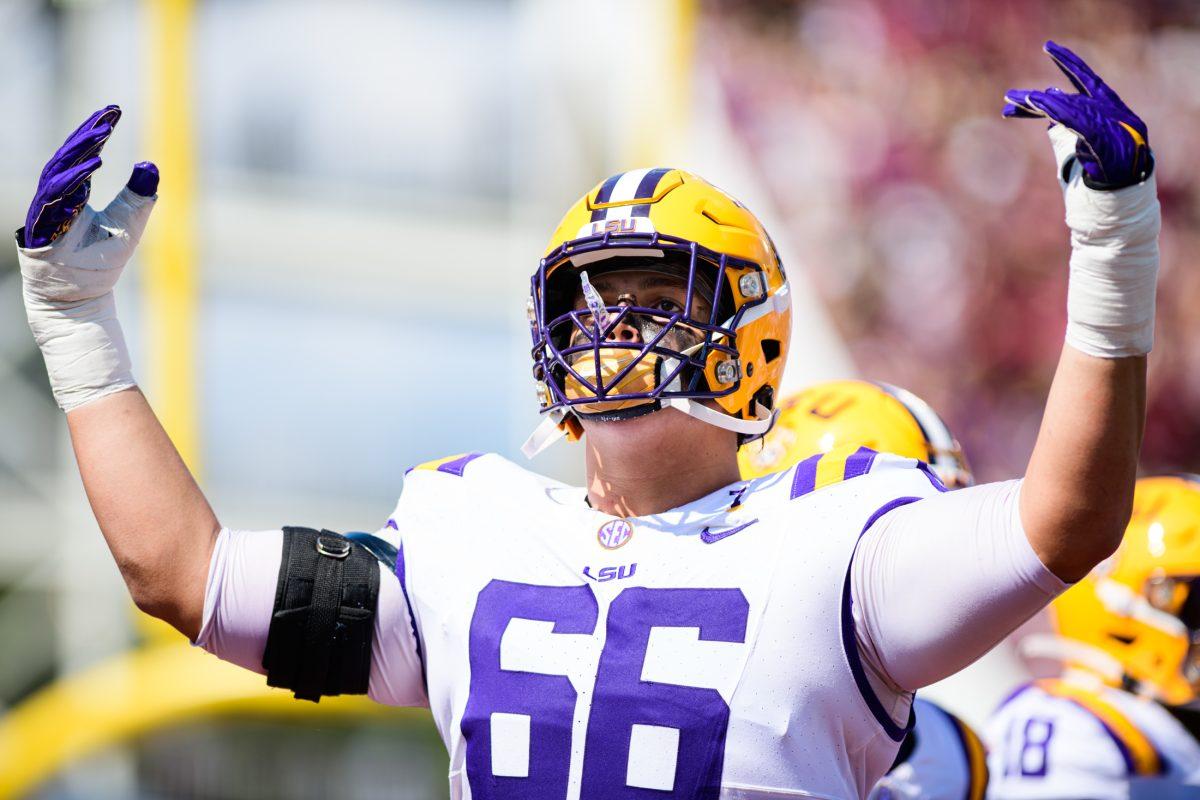Many students encounter trouble when trying to figure out how to pay for all the expenses that pile up while in college.
But accounting junior Elliot Sandidge has found a way.
Around May, he will receive a $2,000 check – and all he did for that check was exercise for two weeks.
Sandidge is participating in a 17-day medical study at the Pennington Biomedical Research Center. The study tests how energy metabolism differs among obese people, athletes and people with type two diabetes. The study also compares those groups with “lean sedentary” people with and without a family history of diabetes, according to Sudip Bajpeyi, post-doctoral researcher.
Bajpeyi said the study also tests the effects of exercise on energy metabolism in “lean sedentary” people with and without family histories of diabetes.
For 17 days, Sandidge spends between 45 and 55 minutes exercising, alternating each day between endurance and interval training exercises.
Sandidge said he was attracted to the study simply because of the money.
“I saw the ad in The Daily Reveille and thought, ‘I could use $2,000,'” he said.
Sandidge said the only thing that made him nervous was the muscle biopsy he had to receive. He said that he felt no pain though and kept his eyes averted during the procedure.
A biopsy is a procedure that removes tissue from certain parts of the body for examination.
“It was totally worth $2,000,” Sandidge said.
Sandidge also said participating in the study has not hugely impacted his life. He said the staff is accommodating and willing to work with him and his schedule.
“I have been able to come after school, so I haven’t missed class or anything,” he said.
But Sandidge did admit to having missed classes because he had to spend two nights at Pennington at the beginning of the study.
Although money was his prime reason for participating in the study, Sandidge said it was not his sole reason.
“I saw [the ad] said exercise, and I had been thinking of starting to work out,” he said. “A friend of mine just joined the gym, and she loves it.”
Sandidge is not alone as a college-aged participant in medical research. About 10 percent of current participants in medical research at Pennington are college-aged – between the ages of 18 and 25, said Grace Bella, Pennington recruiter.
Mandi Cambre, English senior, participated in a herpes vaccination test at the University’s Student Health Center. She said the Health Center offered free herpes testing and $50 to herpes-free students if they would try the vaccine.
“I did it partially for the money, but also because I believe women should be aware of what they can do to prevent STDs and to protect themselves in general,” Cambre said.
Some students said although they have yet to participate in medical research studies, they would do so if it was for a good cause.
“If it’s not harming you, you’re making money off it and it’s benefiting the community, why not?” said Natalie Boone, anthropology senior.
Students said though helping people is a great thing, the monetary incentive is the deciding factor.
“[Money] would probably be why I would [participate in a study],” said Siddhartha Mamidanna, petroleum engineering sophomore. Boone said she has not participated in a medical research study yet, but she would do so – “especially” if they were offering money and participating would not harm her. “I have no other reason for doing so but the money,” Boone said. Cambre said her parents were initially wary of her participating in a medical study. “When they found out I couldn’t get herpes from [the study] they felt better,” Cambre said. “But they definitely had that ‘You are a guinea pig’ attitude.” Cambre said it is silly to attach a stigma to medical research. “It’s not like you are going to get you life’s savings from it. You’re benefiting the community. It’s not like medical prostitution,” Cambre said. Half of college-aged students who participate in medical research at Pennington return to participate in at least one other study, Bella said. Both Cambre and Sandidge said they would participate in it again. Cambre said everyone was really nice, and she felt informed about what the requirements were and how they would carry out tests. Sandidge said now that he knows how much the Pennington staff is willing to cooperate with him, he would definitely be willing to participate in another study. Bella said Pennington wants more college students to participate in studies because it would provide a more complete and accurate picture of the community. She said the biggest barrier to students participating is time. Because of students’ schedules, she said it’s often cumbersome for students to fit in clinical time. Bella also said many studies are long-term, and students would leave the city before the study is completed. Most college students participate in studies with shorter time spans, Bella said.
—-Contact Allen Womble at awomble@lsureveille.com.
Students participate in medical studies for money (3/12/08)
By Allen Womble
March 13, 2008

Elliot Sandidge, accounting junior, does his exercises for a study he is participating in at Pennington Biomedical Research Center.






